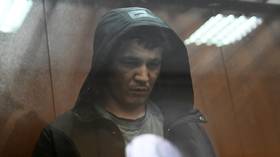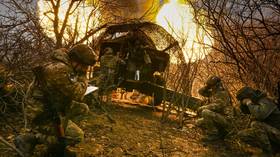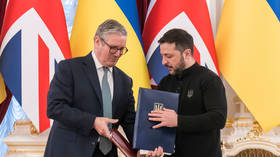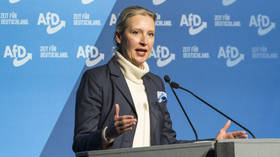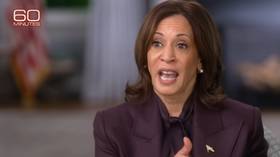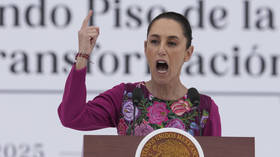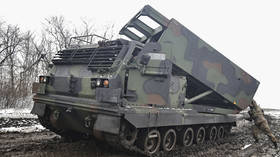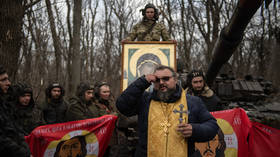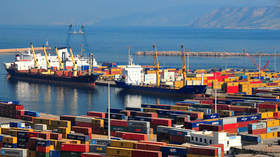Russia intercepts explosive ‘icons’ from Ukraine (VIDEO)
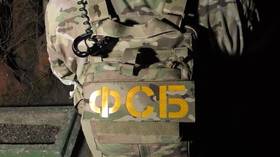
Russia’s Federal Security Service (FSB) announced on Tuesday it had intercepted a smuggling scheme, through which explosives were sent into the country from Ukraine, via half a dozen EU and NATO member countries.
During a vehicle inspection at Ubylinka, a border crossing between Russia and Latvia, the FSB and border guards discovered that a cargo of Orthodox icons and other church goods originating in Ukraine were in fact disguised bomb materials.
Four improvised explosive devices, along with 10kg of high-yield industrial plastic explosives, 91 electronic detonators, and parts of a RPG-7 warhead were found in the shipment, the FSB said.
The items had traveled from Ukraine through Romania, Hungary, Slovakia, Poland, Lithuania and Latvia before arriving at the Russian border. All six countries are members of NATO and the EU, which have backed Kiev in the conflict with Moscow.
A criminal investigation has been opened on charges of illegally transporting explosives across the Russian border. The FSB has detained one person, whose identity has not been revealed.
The FSB has been on high alert since the March 22 terrorist attack at Crocus City Hall, a popular concert venue on the outskirts of Moscow. A group of Tajik nationals killed the security guards and proceeded to set fire to the venue, randomly shooting civilians. At least 144 people were killed and more than 550 injured in the massacre.
All four suspected perpetrators were captured while trying to flee to Ukraine the following day, officials said. Several more people who allegedly aided them in planning and executing the attack have since been arrested. Most of them are also nationals of Tajikistan.
Islamic State Khorasan (ISIS-K) claimed responsibility for the Crocus City Hall attack. FSB chief Aleksandr Bortnikov has suggested that the US, UK, and Ukraine may be linked to the crime, possibly using radical Islamists as proxies.
The US and the EU have insisted that Ukraine had nothing to do with the atrocity. Meanwhile, the head of Ukrainian security service SBU, Vasily Malyuk, boasted of attacks on Russian infrastructure and hinted that he had masterminded the assassinations of several Russian public figures, including journalist Darya Dugina and military blogger Vladlen Tatarsky.
